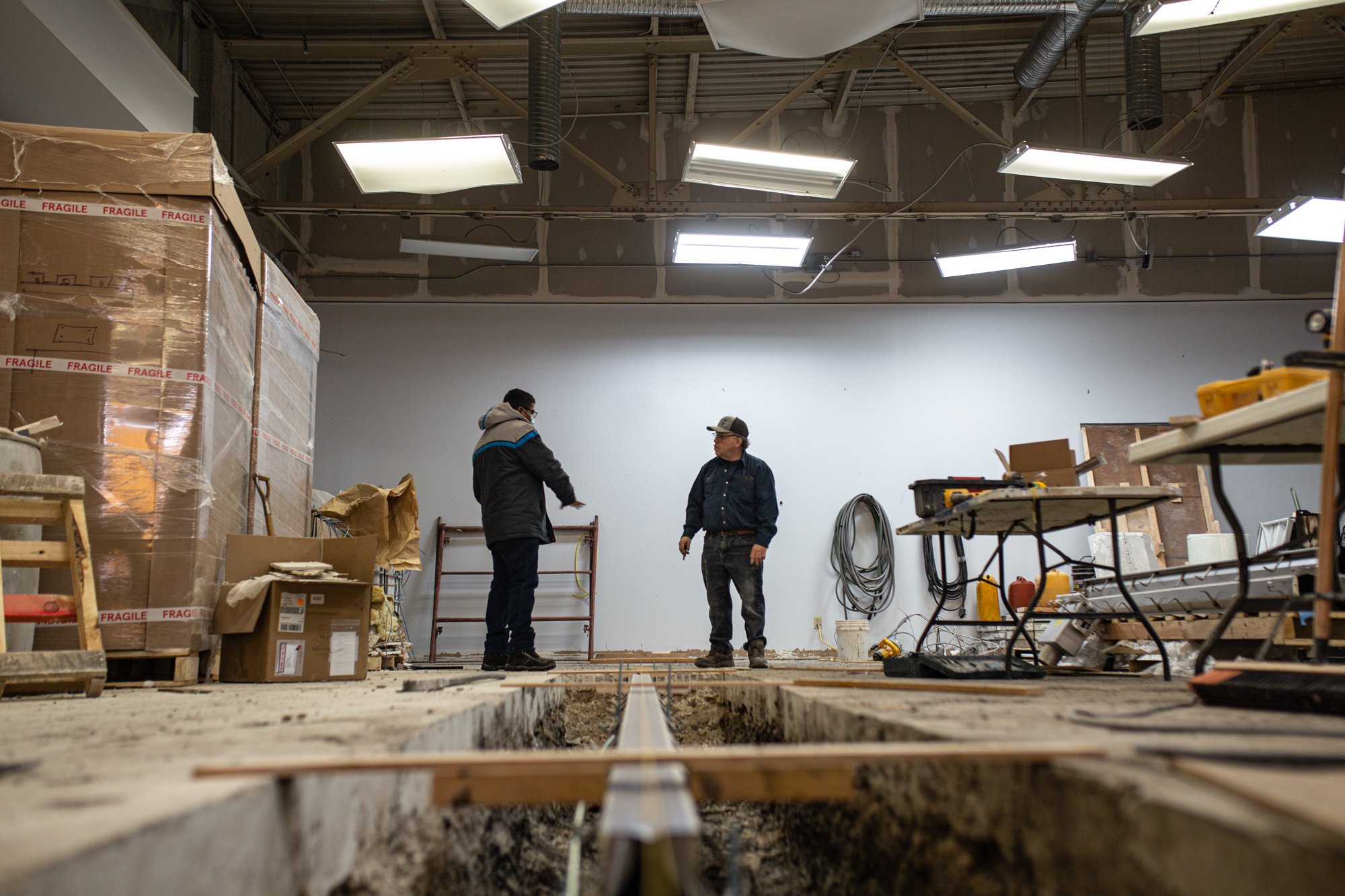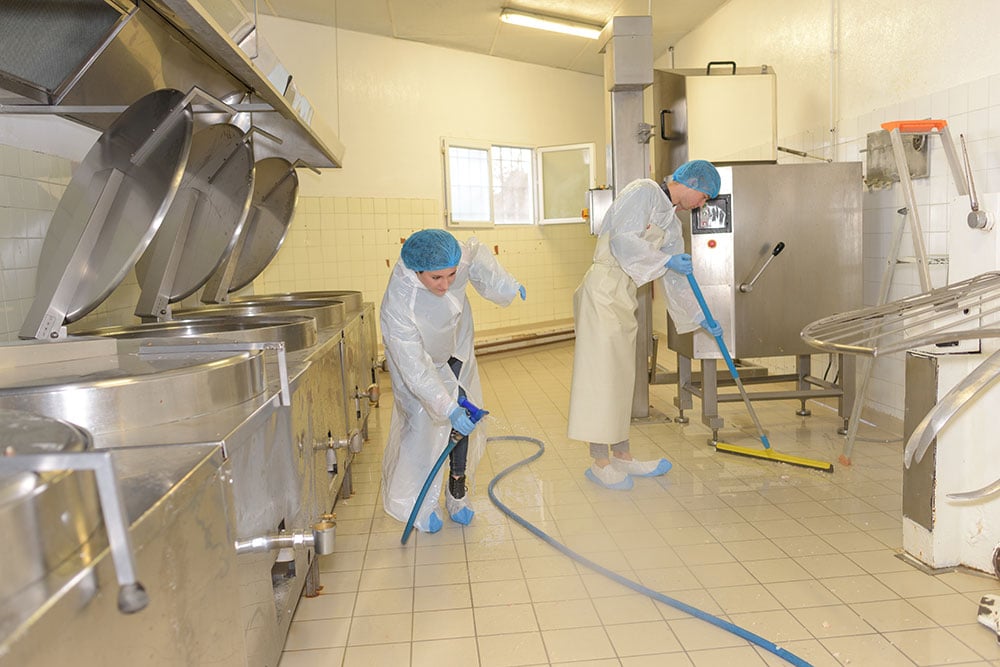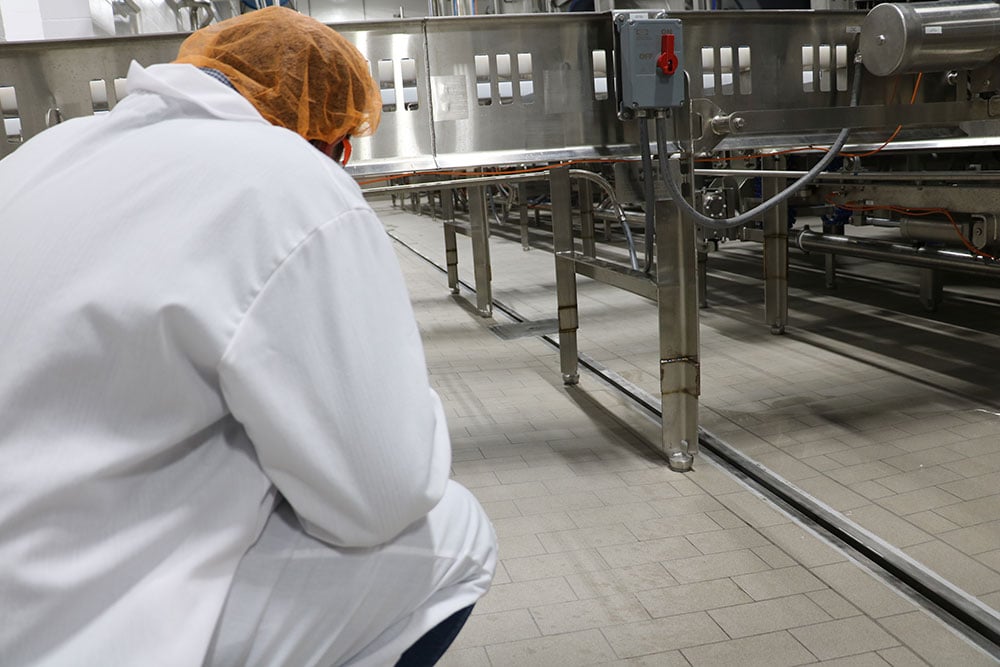FDA-approved drainage systems are important in maintaining high standards of hygiene in food production and restaurant environments.
They are designed to meet stringent regulations and offer qualities of durability and sanitation.
Understanding the importance of these systems can help businesses avoid costly recalls and ensure a safe environment for food production.
FDA REQUIREMENTS FOR DRAINAGE SYSTEMS
Meeting FDA standards is the most important factor for any food manufacturing or restaurant environment.
The FDA requirements ensure that drainage systems prevent contamination and support broader food safety initiatives, such as the FSMA Food Safety Plan, which emphasizes rigorous sanitation practices.
By choosing FDA-approved drainage systems, facilities align with both FDA regulations and FSMA guidelines to create a safer and more compliant production environment.
Materials
To prevent contaminants from compromising food safety, FDA-approved drain must be constructed from materials that resist corrosion and bacterial growth.
One of the most popular options is stainless steel. This is because of its non-porous nature, ease of cleaning, and ability to withstand the harsh chemicals.
Design Requirements
In addition to materials, the FDA requires drainage systems to be designed for easy cleaning and maintenance.
For example, these drains should have smooth surfaces, minimal seams, and properly sloped channels that prevent water from pooling. If the drainage system does not have qualities, the drains could create an environment where bacteria thrives, which ultimately leads to a potential contamination.
Catch Basin
Catch basins are another important component, which effectively trap debris and prevent it from clogging the main drainage lines. This helps ensure that the system operates efficiently and remains compliant with FDA standards.
If catch basins are maintained appropriately, they can reduce the risk of bacterial growth and foster a healthier environment.
Maintenance Expectations
Ongoing maintenance is another component of FDA-approved drainage systems, and it aligns with the principles outlined in Good Manufacturing Practices (GMPs). GMPs:
- Help ensure that food products are consistently produced and controlled
- Emphasize the importance of maintaining clean and sanitary facilities
- Include rigorous cleaning protocols that minimize the risk of bacterial growth
- Ensure compliance with both FDA guidelines and broader food safety
COMPARING FDA-APPROVED DRAINAGE SYSTEM TYPES

Slot Drains vs. Trench Drains
When choosing between slot drains and trench drains, it’s important to consider hygiene, maintenance, and overall efficiency.
Slot drains are often used in food production facilities because of their minimalist design, but without grates, they can trap debris and harbor bacteria. However, these systems allow water to flow continuously as a way to reduce the risk of contamination.
Trench drains, on the other hand, can be effective in some settings, but they can present challenges in high-hygiene environments. Grates, although necessary in some designs, can be difficult to clean and maintain. Over time, grates may weaken as a result of chemicals and heavy traffic. This could also impact the drain system they are a part of.
Point Drains
Point drains are another option that are particularly useful in smaller or isolated areas of a facility. Point drains collect water at a central point and then channel that water away from the area of production.
However, they may require more frequent maintenance and are less effective in large-scale operations where seamless water flow is critical. Their use is generally limited to specific applications rather than being the primary drainage solution.
EXPLORING THE BENEFITS OF FDA-APPROVED SLOT DRAINS
There are several benefits to using FDA-approved drains. Here are some of the most important:
Sanitation
Slot drains provide superior sanitation benefits that make them an ideal choice for FDA sanctioned environments.
Their seamless design prevents the buildup of waste and bacteria, and the absence of grates eliminates the need for intensive scrubbing and cleaning. This also helps reduce the costs of labor and other cleaning materials.
Operational Efficiency
Efficiency is another key advantage of slot drains. Slot drain systems are designed to handle high volumes of water without slowing down. In a busy food production facility, this means fewer disruptions to the workflow, and they require less maintenance.
REAL-WORLD APPLICATION OF FDA-APPROVED DRAINAGE SYSTEMS
Slot drains have been successfully implemented in a number of food manufacturing and restaurant environments. Here are some of the places we at Food Safe Drains have installed our FDA-approved drainage systems:
Bell & Evans

Bell & Evans, a leader in the poultry industry, prioritizes food safety and quality throughout their production processes. But their commitment to excellence is evident in their use of FDA-approved drains, which supports their high standards for hygiene and sanitation.
By implementing our slot drains in their production facilities, they are able to create a seamless flow of water that reduces the risk of bacterial contamination, which ultimately enhances food safety and operational efficiency.
Devil May Care Brewing

Devil May Care Brewing exemplifies a commitment to cleanliness and efficiency in its brewing process.
By using FDA-approved drains, the brewery effectively manages waste and minimizes the risk of contamination to ensure a safe production environment. Their strategic choice of drainage solutions enhances not only sanitation but also operational workflow—creating a reliable and high-quality brewing environment.
How to Selecting the Right Drainage System
When selecting an FDA-approved drainage system, you need to assess your facility’s specific needs, including:
- The types of liquids you are processing
- The layout of your production floor
- The frequency of cleaning required
For facilities dealing with large volumes of liquid waste, FDA-compliant drains can also create operational efficiency and long-term savings.
ENSURE COMPLIANCE AND EFFICIENCY WITH FOODSAFE DRAINS
FoodSafe Drains provides a range of FDA-approved slot drain systems designed to meet the unique needs of food production and restaurant environments.
Our solutions are durable, easy to maintain, and customizable to fit any facility.
Interested in getting access to your own FDA-approved drainage system?
Contact us today to find the best system for your business!


